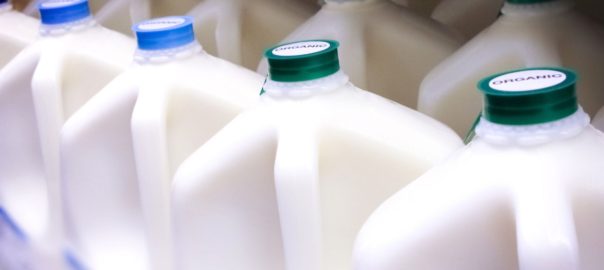 Many years ago I used to list to a Paul Harvey program called “The Rest Of The Story.” In his radio show Paul Harvey would lead with some sort of a story. But it always turned out that there was something we didn't know. As I recall, usually after a commercial break he would come back on air with the statement, “And now, for the rest of the story” and proceed to fill in something we didn't know or perhaps had forgotten. He'd end with, “And now you know the rest of the story.”
Many years ago I used to list to a Paul Harvey program called “The Rest Of The Story.” In his radio show Paul Harvey would lead with some sort of a story. But it always turned out that there was something we didn't know. As I recall, usually after a commercial break he would come back on air with the statement, “And now, for the rest of the story” and proceed to fill in something we didn't know or perhaps had forgotten. He'd end with, “And now you know the rest of the story.”
Ingredients matter
I was reminded of this the other day when an article about the benefits of broth came across my desk. Entitled Broth Is Back the article was talking about bone broth and how wonderful it is. It went on to give three recipes for broth, beef, chicken, and vegetable. A quick look showed the use of apple cider vinegar in the beef broth but not in the chicken broth. This is unfortunate because the vinegar helps to draw minerals from the bones making the broth richer and more nutritious. The article did not specifically mention it, but it's best if the vinegar used is raw, unfiltered apple cider vinegar which has enzymes.
Then I looked more closely at the recipes and was frustrated to see that they were recommending the use of canola oil. Canola is not a good choice as far as oils go. Highly genetically modified (it's one of the most modified crops we have) it's not a great fatty acid profile. If you want to add fat to your broth a better choice would be some of the fat from the meat, ghee, or olive oil.
Recipes
Broth is back. It's delicious, nutritious and so easy to make. Adding collagen, glutamine, and a host of nutrients it's easy to incorporate into your diet either drinking it plain or using it as the base for risottos, sauces, soups, and more.
One of my favorite ways to serve bone broth is as a miso style soup. It's a perfect afternoon treat.
Nourishing Broth Miso
1 cup nourishing broth – heat on stovetop
while broth is heating shred ½ a carrot
dice 1 spring onion
thinly slice 1 mushroom
add veggies to broth
add generous pinch of sea salt
add generous pinch of freshly minced parsley if desired
And if you're looking for a variety of bone broth recipes both to make and to use the broth there's a new book, Nourishing Broth: An Old-Fashioned Remedy for the Modern World by Sally Fallon Morell and Kaayla T. Daniel. Starting with chapters that provide a deeper understanding of collagen, cartilage, bone and marrow, the book discusses why the addition of this nourishing food is so supportive for our system. If you're looking for more information about broth and some creative ideas on how to incorporate it into your diet, this book would be a good addition to the bookshelf.
This is one of the delicious recipes from the book:
Breakfast Meat and Veggie Scramble
serves 2
2 tablespoons lard, duck fat, suet, butter, or ghee, or a combination, plus more if needed
8 ounces meat (i.e., shredded chicken, ground meat, sausage)
2 ups shredded or finely ied vegetables
up to ½ cup homemade broth
sea salt and freshly ground black pepper
Toppings: butter, grated raw cheese, sour cream, avocado, or raw sauerkraut
Melt the fat in a large cast-iron skillet over medium heat. Add the meat and cook it until browned, about 5 minutes. Remove the meat with a slotted spoon to a bowl. Add additional fat to the pan if necessary.
Add the vegetables to the fat in the pan and cook until tender. Start with onions, mushrooms, and more fibrous vegetables, and add the more tender vegetables at the end. Add up to ½ cup bone broth, bring to a simmer, reduce the heat to low, and simmer for about 5 minutes. Season with salt and pepper. Add the meat to the vegetable mixture and cook until warmed through. Serve with your choice of toppings.
*****
So yes, bone broth is back. It's not new but it's perhaps newly rediscovered. It's delicious, it's good for you, and it's best made with a healthy fat and even chicken broth can benefit from the addition of raw, unfiltered apple cider vinegar.
Now you know the rest of the story.

